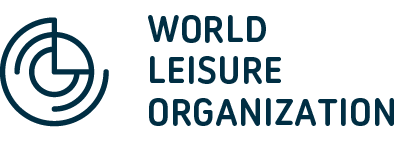Ms. Bertine Bargeman
Breda University of Applied Sciences

Contact
Further information
BUAS has a large amount of academic publications every year. Are you looking for someone in particular or do you need specific expertise? You will find the information you need, as well as the contact details in the BUAS Expertbase. Check here: https://pure.buas.nl/en/home/index/
Breda University of Applied Sciences (BUAS) is a public university situated in the Netherlands with a strong international focus. The institute caters for more than 7,000 students of whom 12% are from abroad representing over 60 countries. BUAS was founded in 1966 as an institute offering management programs in tourism and leisure and in this field (including hospitality) it is currently the largest and leading educational institution in the world.
Today BUAS offers professional and academic bachelor’s and master’s programs. With a focus on the development of academic knowledge and the promotion of sound professional practice, the specialist disciplines of BUAS comprise eight domains: Leisure & Events, Tourism; Hotel, Facility, Built environment, Logistics, Games and Media.
It is precisely because these domains are interrelated and interwoven that an inspiring climate is created to foster knowledge development and sharing (Visit the University’s website at https://www.buas.nl/en). A dynamic link between education, research, and industry intends to lead to continuous innovation and relevance for students, staff, industry, and the academic community.
BUAS Academy for Leisure
BUAS has arranged its education activities in five academies. The World Leisure Center of Excellence is part of the Academy for Leisure and Events (ALE). This Academy has a focus on leisure, events and imagineering programs and was created 25 years ago as a separate domain of studies next to the related field of tourism studies. The student body is made up of 1,500 students and there are about 100 lecturers and administrative staff.
ALE substantially invests in research. However, a difference with the overall BUas research vision is that in addition to applied research, there is a stronger focus in the Academy on academic research, aimed at theoretical knowledge development. Additionally, ALE has chosen to integrate research and education activities as much as possible, in line with the firm belief that we are an integrated knowledge institute rather than an educational institute with (separate) research activities. Our research aims to (1) contribute to industry and society by developing and disseminating both applied and scientific knowledge, insights and best practices in the field of leisure and events, (2) to involve students in this process as part of their educational programmes, and (3) to enrich our educational programmes with the knowledge developed through our industry-focused and scientific research.
A primary focus of the World Leisure Centre of Excellence, as part of ALE, is delivery of the Master Leisure and Tourism Studies.
Leisure related programmes
The Master Leisure and Tourism Studies (MLTS) started as a full-time master’s program at the School of Social and Behavioural Sciences of Tilburg University in 1984. Since then 1,134 students have graduated. As from 2004, the program has been delivered in English, which enables students from all over the world to attend it. The MLTS is the only MSc program in this field in the Netherlands. From 2014 onwards the program has delivered by BUAS, Academy for Leisure and Events.
The Master Leisure and Tourism Studies has always adopted an integrated (supply-demand; actor-structure) and multidisciplinary (economics, sociology, psychology, management, marketing, etc.) approach to the composite and complex fields of leisure and tourism. This approach has been strengthened through the years as the effects of processes of globalization, economic restructuring and the growth of the network society have changed the meaning of leisure and tourism. More than ever, leisure and tourism practices have become of importance as domains of identity formation, of socio-cultural involvement, of creativity and of producing ‘emotional energy’. The MLTS consists out of two main phases: Master classes and the Master’s Thesis trajectory.
Phase I – Master classes related to Leisure in a Network Society
All five master classes in the first phase have a dynamic set-up in the sense that they are positioned within the ALE-wide research context of ‘Leisure in the Network Society’ (see below). The master classes centre around the two main research lines within this research context: Experiences & Storytelling and Placemaking & Events.
- Leisure, Creativity and Space
This master class discusses recent insights into the processes of globalisation, mediafication and commercialisation and their impact on the changing role of leisure and tourism in the design of public and private places and spaces. - Understanding Leisure and Tourism Attractions and Events
Recent insights and research in the field of change management, innovation, networks, co-creation, attractions, theme parks, and ‘eventful cities’ are the key ingredients of this master class. - Imagineering as Strategic Design in Leisure Organisations
Central themes of this master class include strategic management, value creation, and strategic design. Students are introduced to the theoretical foundations of Imagineering and their application in the creative industries. - Experience Marketing in Leisure and Tourism
As marketing is a key instrument in the leisure and tourism industry, the master class in Experience Marketing will immerse students into the field of marketing and market research, zeroing in on the leisure and tourism industry and the experience economy. Data analysis of consumer experiences is one of the topics addressed in this course. - Analysing Leisure Interactions
In this master class students are introduced to the field of social practice theories, the network society, interaction rituals and core concepts of leisure and tourism studies. Students work in groups to study authenticity, new media, and happiness.
Phase II – Master’s Thesis
To ensure a smooth progression from the classes and content phase (phase I) to the thesis phase (phase II), students will first attend the Seminar Leisure Studies to select and elaborate a thesis topic. The topics are linked to the two main ALE research lines. A structured process leads to the finalisation of the individual thesis proposal. This proposal culminates in a research thesis on a theme which has academic and social relevance.
Research lines Academy for Leisure and Events
The master classes and thesis work of the Master Leisure and Tourism Studies centre around the ALE research lines, which are anchored in the research programme ‘Leisure in the Network Society’ (running since 2009). In the contemporary network society, the development of leisure practices depends on the interplay of global (macroeconomic), local (place-related contexts) and individual (experiences, motivations, routines) factors. These issues come back in two research lines: Placemaking and Events, and Experience and Storytelling.
Research line Placemaking and Events
This research line is being led by prof. dr. Greg Richards., and co-chaired by dr. Marisa de Brito.
The Placemaking and Events Research Group aims to analyse the use of leisure to create physical locations and events, and the role of leisure attractions and events in processes of regional and urban development. The major area of expertise are events, where the group has been working over the past decade to develop world-leading research on the creation, maintenance and effects of events and festivals. They have staged a number of international seminars and conferences (in collaboration with ATLAS) and produced many books and journal articles. The group leads the international Events Experience Project. In the arena of Placemaking, they analyse how to improve the quality and function of places in which leisure is produced and consumed. The group is integrating the two research streams through work on the role of events in placemaking. The group is also linked to a number of PhD projects in the fields of events, transformational experiences, creative cities and social network analysis. They also have a key role in external research projects, including the assessment of the events portfolio of Breda, the ERASMUS Plus Run for Health project and a Horizon 2020 project on Smart Cultural Tourism in Europe.
Research line Experiences and Storytelling
The ambition of this research line is to develop, apply and disseminate theories, methods, tools and techniques aimed at assisting organisations, businesses, professionals, and the like, in successfully designing (and staging) sustainable leisure, tourism, hospitality, and other type of experiences.
Because of the diversity of research activities and expertise in this research line, it is being further subdivided into four learning communities (see below). Learning communities involve researchers, lecturers, students and often also industry partners / commissioners in research and design activities.
Experience Design through Storytelling
This learning community is being led by professor Storytelling dr. Moniek Hover.
Storytelling is a phenomenon that applies to both fiction and non-fiction. An important objective of telling stories is to engage or entertain people, by sparking emotions. Stories can help visitors attach meaning to places, images or objects. Designing a memorable and meaningful experience requires the use of storytelling principles, which allow the customer to create a coherent image of the experience and connect it to his/her values.
The purpose of the overarching storytelling and experience research is (1) to unravel the connections between (implicit, explicit and interpretative) storytelling as applied by suppliers in leisure, tourism and hospitality (LTH) contexts and the emotions/experience of visitors. Storytelling includes (joint) marketing/branding efforts (e.g. within regions), on-site (digital) storytelling, and (co-creative) storytelling in the pre- and post-exposure phase. Apart from studying storytelling together with interdisciplinary teams of researchers, experts (both academic and practice-oriented), and students, this group (2) also creates narrative concepts, storylines, and storytelling products for the industry. This involves taking the content of LTH experiences and loading it with storytelling in a way that engages visitors’ emotions. The link with education is guaranteed through lectures and workshops that show storytelling methods and industry projects the group is involved in, through student assignments in line with the own commercial projects, and through individual research projects for master’s students.
Experience Research
This learning community is being led by prof. dr. Marcel Bastiaansen.
The overall goal of this learning community is to develop a theoretical understanding of leisure experiences and to develop innovative research methods for measuring experiences. These measurement tools are being used for evaluating existing and novel experience designs (developed e.g. through storytelling or Imagineering). This provides for a natural interaction and collaboration with the learning communities in this research line that are aimed at experience design.
It is currently understood that emotions play a crucial role in shaping leisure experiences. A prominent feature of this learning community is that it combines physiological indices of emotional engagement (brain activity, heart rate, skin conductance, facial expressions) and geolocation data (heatmapping) during leisure experiences (e.g. a visit to a museum, theatre, theme park or festival) as innovative research tools for experience measurement. These innovative research techniques are being developed and applied in the Experience Lab, a BUas-wide platform for experience research in which the Academy of Leisure and Events plays a leading role.
Marketing and Managing Experiences
This learning community is being led by senior researcher dr. Pieter de Rooij.
The goal of this community is (1) to develop new insights into marketing and managing experiences with a specific focus on the cultural industry and (2) to connect academic research, practice and education. In order to market experiences, it is important to study consumer behaviour and understand consumption motives, decision-making processes and leisure practices. These customer insights are applied in strategic marketing and management decisions. Organizations need to select the right customer value. Issues are addressed how organizations can become more customer centric and how collaboration processes between departments can be facilitated. Organizations need to market their experiences to the right audience segments. It is relevant to effectively reach current customers or new target audiences with the right offer. Which communication channels are most effective? Finally, it is important to evaluate customer experiences to improve customer satisfaction and loyalty. How do customers value the experience and how to improve customer engagement throughout the customer journey?
Designing experiences in systems (for transformation, innovation, change)
This learning community is being led by senior researcher dr. Liliya Terzieva.
The world is in need of new, complementary approaches and methods as society grows ever more complex. We see the depletion of natural resources running alongside the vast growth of connectivity, creativity and innovation. As Designing experiences in systems stems from and is embedded in the complexity paradigm of open systems, non-linearity and dynamics of growth, in its core it goes beyond just design, innovation, business modelling or change management. What it does is enabling societies, businesses, organizations to consciously develop in a strategic direction with the mind-set of building upon self-organization and emergence. As such, designing experiences in systems fits into the context of strategic design. Aiming to realise organisational change that is in favour of value creation in society at large, and realising business innovation which concurrently delivers social innovation.
The topic of this learning community is about igniting (bottom-up driven) innovations through (re)designing, nurturing, maintaining, and enabling transformational practices and processes in a co-creative, imaginative and dialogical way, that contribute to addressing complex challenges in variegated sectors and are aimed at having a sustainable organizational or social impact. The learning community is considered an open space (the overall umbrella) where people (industry professionals from various sectors, alumni, students, teachers, other knowledge institutes, etc.) engage in meaningful ways to experiment, share, exchange and build upon each other ideas, experience, creativity, and expertise that often leads to a synergetic outcome.
Opportunities
Every year BUAS welcomes many international students and researchers. Please contact BUAS International Office (international.office@buas.nl) to learn what the possibilities are if you are interested in visiting BUAS as a student or as a researcher.



